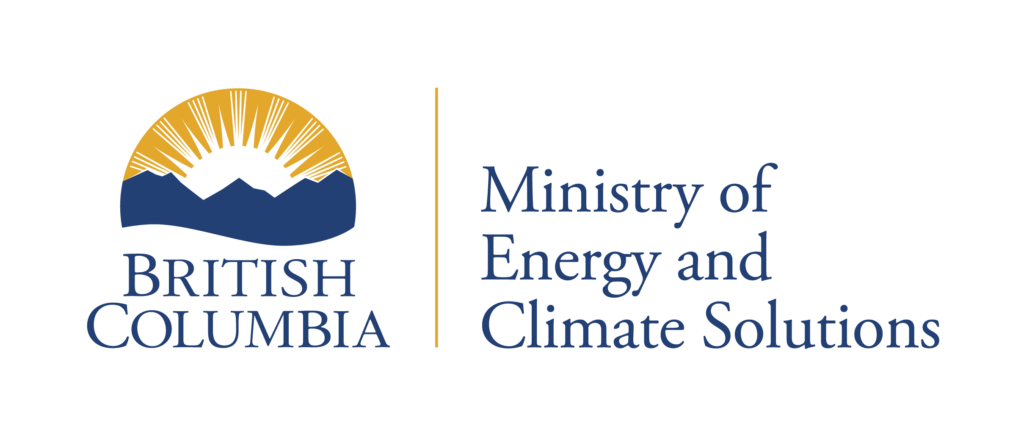The Need
Successful completed Geoscience BC studies of geothermal potential are already driving investment. In Southwest BC work in the Garibaldi Geothermal Volcanic Belt Assessment Project supporting the development of low carbon intensity hydrogen production, and in Northeast BC the Fort Nelson First Nation is developing its Tu Deh-Kah Geothermal project following significant Geoscience BC-supported research into geothermal potential at Clarke Lake Geothermal Pre-Feasibility Study.
Northwest BC hosts numerous volcanoes and hot springs, and therefore has potentially significant geothermal energy resources. This new study will help assess the geothermal resource potential of the region to guide development decisions by industry, communities, Indigenous groups and government.
Geologic carbon storage opportunities are being researched by Geoscience BC throughout the province, where sedimentary basins and ultramafic rocks are being assessed for their potential to store CO2. This project would add knowledge about potential opportunities for geologic carbon storage to a region with an extensive mining industry.
Project Goals
This Energy project fits under our Strategic Objective of Enabling Cleaner Energy.
Specifically, the Phase 1 scoping review goals were:
- Identification of priority areas for future desktop analysis and future exploration to support geothermal and CCUS development.
- Foster collaboration among Indigenous communities, industry leaders, government entities, and academic institutions to ensure a comprehensive and inclusive project design.
- Align with BC’s CleanBC Roadmap to 2030 and federal decarbonization goals, showing how geothermal energy and CO2 storage can contribute to broader climate action objectives.
Project Benefits
Geothermal energy generation can have a low environmental footprint and can provide stable baseload-power supply without the need for energy storage. Geological carbon storage is a long-term option for removing and safely storing CO2 in sedimentary basins or locked into carbonate minerals. Identifying opportunities for geological carbon storage will help identify areas and opportunities to permanently store atmospheric CO2. The foundational geoscience information generated by this project will give geothermal energy producers, communities, governments and Indigenous groups a better understanding of the potential geothermal resource at a suitable site in Northwest BC.
New tools and techniques can also be applied elsewhere to reduce risk and increase efficiency of exploration for geothermal potential.
Location
This research targeted a large area of BC’s Northwest Region.
Geoscience BC encourages anyone planning exploration work to first contact Indigenous groups in the area. The Province of British Columbia’s Consultative Areas Database can help with this (https://maps.gov.bc.ca/ess/hm/cadb/). The Association for Mineral Exploration (AME) also produces an Indigenous Engagement Guidebook.
What was Found?
This Phase 1 scoping study searched and catalogued the publicly available geoscience literature and data relevant for the task of assessing the favourability of the project area for geothermal energy resources and carbon sequestration.
The study utilized a Play Fairway analysis methodology that gathered and analyzed eighteen discreet datasets to undertake and complete the analysis. The goal was to identify areas more likely to have geothermal resource potential than other areas in the region studied. The analysis applied data analytics and was completed for five types of naturally occurring geothermal systems including 1) volcanic hosted, 2) structurally controlled (fault/fracture), 3) radiogenic plutons, 4) sedimentary basin plays, and 5) ultra-deep/ultra-hot rock. Three primary geological criteria were used to help drive the analysis – heat, permeability and fluids. This study’s assessment methodology could be used to further assess the geothermal resource potential of the study area when more data is available.
The study was able to generate geothermal favourability maps for volcanic hosted, structurally controlled (fault/fracture), and sedimentary basin hosted systems. There were insufficient data to generate favourability maps for radiogenic plutons or ultra-deep/ultra-hot rock systems.
It is important to note that the favourability maps generated, and the term “favourability” in the context of the study, are relative only to other areas within the study area, not to other parts of the world where geothermal systems exist. Additional research is required to further assess those areas identified as favourable by this study. Electronic versions of all maps are available (see Deliverables, below).
The study identified the Mount Edziza/Spectrum Range area in the central region of the study area and the Iskut-Unuk River area in the southwestern region of the study area as being particularly favourable for additional geothermal resource assessment, but other areas showed promise as well. The study did not assess the various technologies that are being developed to extract geothermal energy but focused solely on the geological conditions likely to favour the development of zones of hot rock.
In addition to the geothermal assessment, the study undertook a very high-level assessment of geological carbon sequestration potential. This involved an assessment of the available data for sequestration in deep sedimentary saline aquifers, as well as for carbon mineralization in suitable shallow basaltic and ultramafic rocks. The study noted that the southeast region of the study area hosts the deep sedimentary Bowser Basin; however, existing well control (two deep wells) and other information is so limited that the basin is not identified as having deep saline aquifer CO2 sequestration potential without considerable additional drilling and information.
With respect to carbon mineralization, the study identified seven areas within the study area, and one area just outside the study area, that may have potential for carbon mineralization. Further work is needed to assess these areas.
For each section of the report the authors have identified data gaps and made recommendations for additional work.
Geoscience BC has also supported geothermal and carbon storage potential assessments in other locations in BC:
